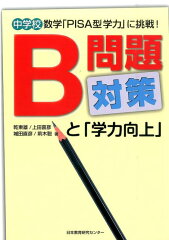
<prologue>
I started a blog called “The Baby Boomer Generation’s Miscellaneous Blog”(Dankai-sedai no garakutatyou:団塊世代の我楽多(がらくた)帳) in July 2018, about a year before I fully retired. More than six years have passed since then, and the number of articles has increased considerably.
So, in order to make them accessible to people who don’t understand Japanese, I decided to translate my past articles into English and publish them.
It may sound a bit exaggerated, but I would like to make this my life’s work.
It should be noted that haiku and waka (Japanese short fixed form poems) are quite difficult to translate into English, so some parts are written in Japanese.
If you are interested in haiku or waka and would like to know more, please read introductory or specialized books on haiku or waka written in English.
I also write many articles about the Japanese language. I would be happy if these inspire more people to want to learn Japanese.
my blog’s URL:団塊世代の我楽多(がらくた)帳 | 団塊世代が雑学や面白い話を発信しています
my X’s URL:団塊世代の我楽多帳(@historia49)さん / X
When I was in college, I remember hearing the following from a professor in the College of Liberal Arts and Sciences, and it made sense to me.
Have a critical mind. For example, “It is because the newspaper says so and so” is a sales pitch without any thoughts or opinions of your own, and college students should not blindly believe what they read in newspapers or books in this way.
It is a story that goes along with Nobel Prize winner Professor Tasuku Honjo’s talk on “having a mind of doubt” and Professor Emeritus Chizuko Ueno of the University of Tokyo’s “meta-knowledge”.
1.What is the critical spirit?
Critical thinking” can be replaced with ”critical spirit. In his book “The Critical Mind,” philosopher Takeo Iwasaki (1913-1976) states, “If we can think correctly and make correct judgments, we can take appropriate actions when we encounter various situations.
He suggests that it is important to “first question everything” and “have a critical mindset. At the same time, he also suggests the necessity of “negation for affirmation,” or “a humble attitude of learning from all opinions while questioning all things.
Finally, he lists three things that hinder correct judgment: (1) uncritical belief in authority, (2) overconfidence, and (3) uncritical acceptance of common sense.
Of the (1) “authorities,” it is the “mass media” such as newspapers and television that we should be most careful about. Also, the words of famous historical figures or famous “authorities” in a particular field are not always correct.
Descartes’ “I think, therefore I am” (Cogito ergo sum) and the teachings of Professor Yasumi Nishizuka, who taught Professor Tasuku Honjo, last year’s Nobel Prize winner in Physiology or Medicine, are also saying the same thing.
However, since different people have different ideas, beliefs, and “principles,” it is inevitable that the results of their decisions will be variously divided and create “conflicts.
2.What is “PISA (PISA-type Academic Achievement)”?
PISA is an abbreviation for the International Assessment of Student Achievement (IAS), an academic achievement survey conducted by the Organization for Economic Cooperation and Development (OECD).
Approximately 540,000 15-year-old boys and girls in 72 countries and regions around the world are surveyed in the three areas of reading comprehension, mathematical literacy (applied skills), and scientific literacy.
It is not the degree to which a person understands what he or she has learned in school, but the ability to use knowledge and experience to actively think independently about the challenges he or she faces in various real-life situations.
In the results of PISA conducted in 2015, Japan ranked 2nd in “scientific application skills,” the highest since the 2006 survey, and “mathematical application skills” rose from 7th to 5th. On the other hand, “reading comprehension,” which ranked fourth in the previous survey, dropped to eighth.
<Addition on 12/4/2019> Results of the 2018 PISA survey released.
Japan dropped from 2nd to 5th place in “Scientific Applied Skills” from the previous survey, while “Mathematical Applied Skills” also dropped from 5th to 6th place. Shockingly, “reading comprehension,” which was ranked 8th in the previous survey, dropped even further to 15th. The test format this time was the same as the previous one, using a computer.
Although it is difficult to generalize about the causes, the following are noted.
1) The ratio of (almost) daily “chatting on the Internet” and “playing one-player games” is the highest.
(2) Conversely, the ratio of use of the Internet for study purposes, such as “doing homework on the computer” and “browsing Internet sites for schoolwork,” is the lowest.
(3) Approximately 80% of first-year high school students in Japan do not use computers, tablets, or other digital devices in class, the lowest rate among the 31 OECD member countries.
(iv) Japanese students were unfamiliar with the computer-based testing format due to the above circumstances.
(5) The number of students who have the habit of reading newspapers and reading books has been decreasing, and students are becoming less and less familiar with the printed word.
I think it is good that “PISA-type academic achievement” is now attracting attention in addition to “knowledge education. However, we need to be careful that this does not lead to “disregard for knowledge education.

B問題対策と「学力向上」 小学校算数「PISA型学力」に挑戦! [ 武田政幸 ]

